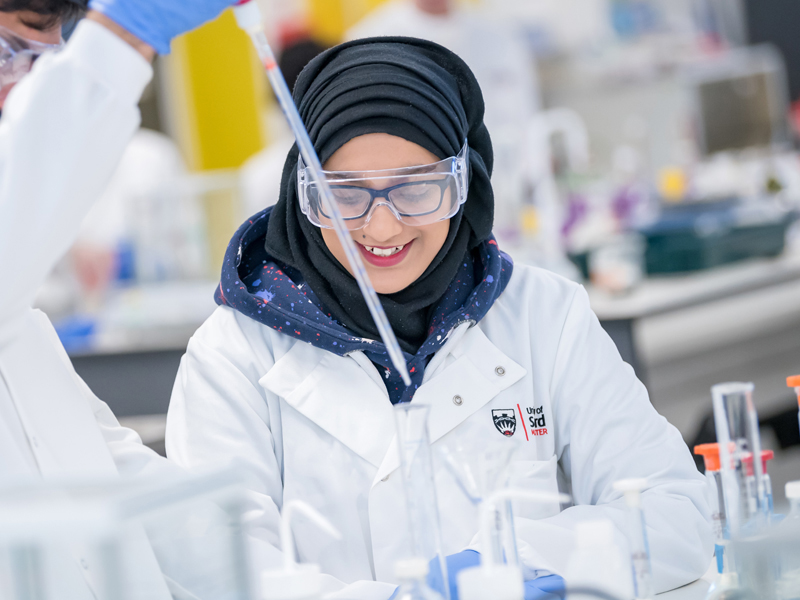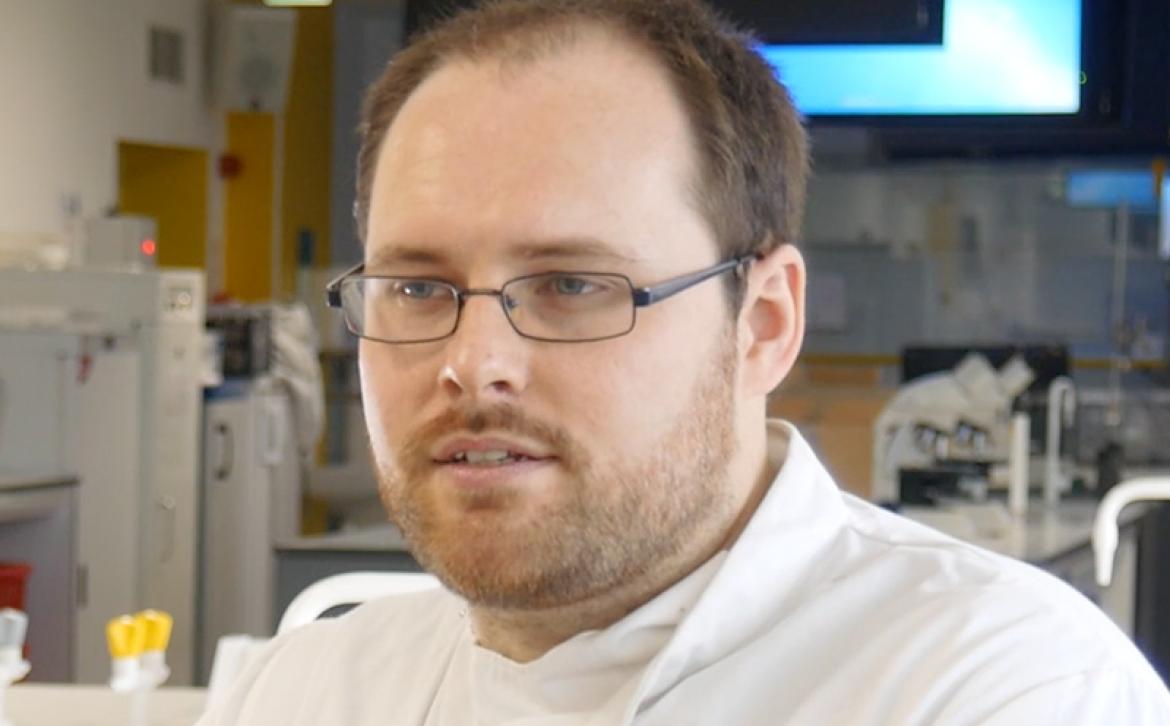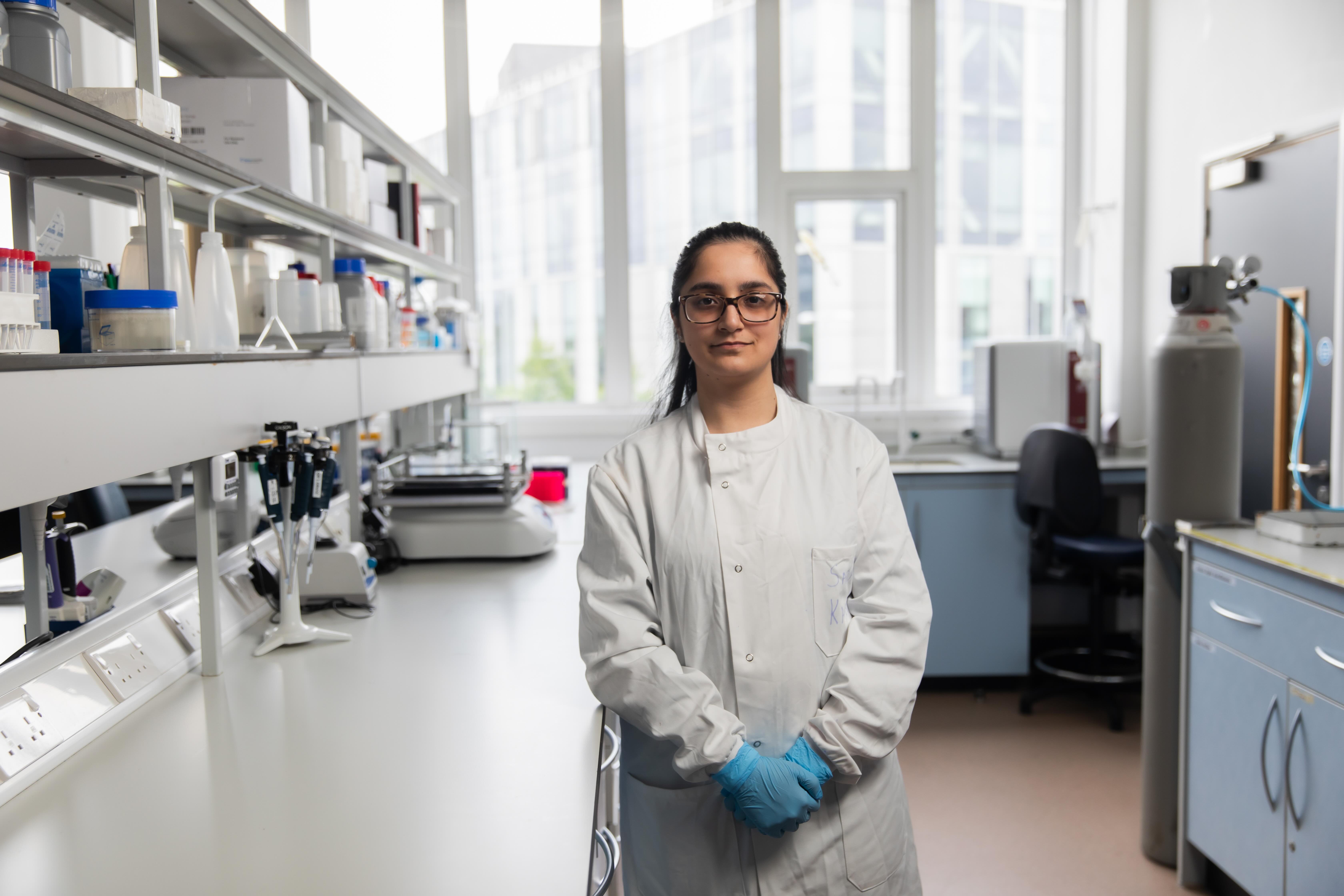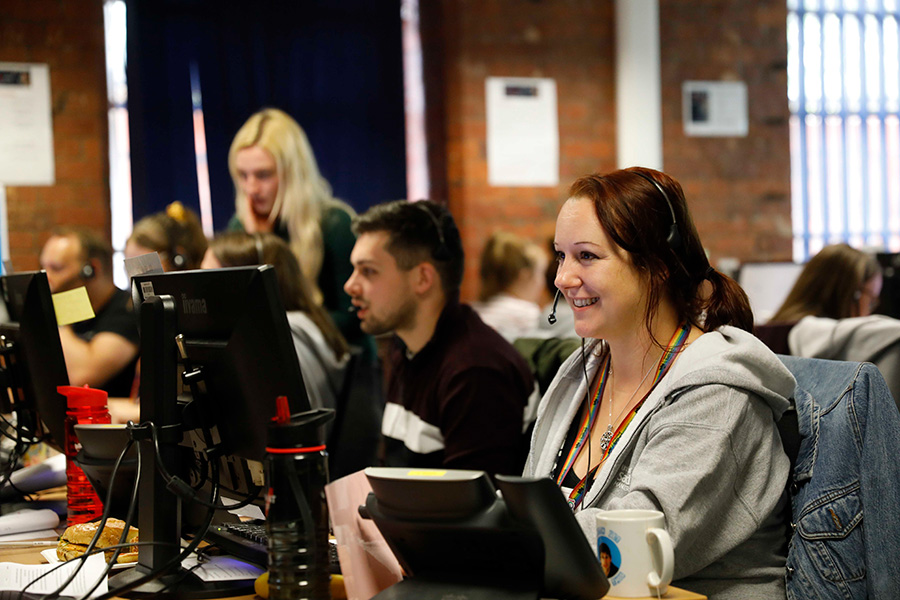Biomedical Science Clearing courses
Clearing 2025 is now closed. Find out how to apply to the University of Salford and start your course in September 2026. If you have any questions about the Clearing process, take a look at our Clearing FAQs.
Interested in understanding human health and the diagnosis and treatment of disease? Want to join a generation of scientists training to defeat viruses? Then our biomedical science Clearing courses are for you.
We’ve designed our biomed Clearing courses to be tailored around you and your future career. Two of our Clearing biomedical science degrees have a range of optional modules that you can take in your third year according to your interests.
Whether you're interested in how diseases work, want to help develop new treatments, or aim to make a difference in public health, our biomedical science courses in Clearing give you the foundation and flexibility to turn your goals into reality.
Biomedical Science Courses in Clearing

On our biomedical science Clearing courses, you’ll learn how to apply the principles of biology for medical purposes. Our degree courses are designed to help you develop the lab skills needed to become a highly employable biomedical scientist – or embark on a career in medical laboratory research.
As a biomedical science student, you will be based in our advanced, integrated teaching laboratory, known as the Bodmer Lab. This specialist, purpose-built facility ensures you’ll learn using the latest, cutting-edge technologies.
At the University of Salford, we’ll welcome you into a supportive environment where you are a name, not a number. You will benefit from small group teaching and one-to-one support from your course tutors, providing you with the chance to learn from active research staff.
Our biomedical science Clearing courses have a strong practical focus and the option of going on an industry placement. This offers a great opportunity to gain hands-on experience and make those early career connections.
Career support is also offered throughout GEMMS (Graduate Entry Medicine Mentoring at the University of Salford). GEMMS is a programme that offers comprehensive mentorship in interview techniques, debating skills, and ethical scenarios. Through GEMMS, we also facilitate opportunities for work experience and help students prepare for job interviews, to ensure they’re ready for their future career.
View our Biomedical Science Courses in Clearing
BSc (Hons) Biomedical Science - with optional Placement Year
Our BSc (Hons) Biomedical Science course is accredited by the Institute of Biomedical Science (IBMS), which means it meets their requirements for receiving up-to-date knowledge in the right learning, support and teaching environment. Studying an accredited course shows employers that you have the knowledge and skills they are looking for in graduates. Studying one of our accredited biomedical science courses in clearing also provides greater employability prospects and enhanced competitiveness in a crowded global jobs market.
You will have the option to take an industry placement year between years two and three of this course. Although you will be responsible for securing your placement, a tutor will support you, monitor your progress and assess your final placement report. Recent biomedical science students have completed placements with leading laboratories at Wythenshawe Hospital, Manchester Royal Infirmary, and Aintree Hospital.
BSc (Hons) Biomedical Science with Foundation Year
If you’re interested in learning how to apply biology-based science to clinical medical situations, then our BSc (Hons) Biomedical Science with Foundation Year is for you. The foundation year of this four-year course will provide you with an understanding of the subject, to allow you to progress on to the BSc (Hons) Biomedical Science course.
At the University of Salford, we encourage industry-focused learning. Students have previously had the chance to visit local pathology laboratories and speak with external NHS specialists
BSc (Hons) Human Biology and Infectious Diseases - with optional Placement Year
Our BSc (Hons) Human Biology and Infectious Diseases degree in Clearing is a biomedicine-based subject that combines aspects of immunology, human physiology, and infectious diseases. This course will set you on a career path to help identify and treat infectious and non-infectious diseases found across the world.
You will have the option to undertake a relevant industry placement in clinical or research-based settings, either within the UK or internationally. Students have recently completed placements at the Wolfson Imaging Centre and Clinical Epidemiology Unit in Manchester.
If you are looking for a career in pharmaceuticals, biotechnology, public health, health care, scientific innovation, food manufacturing, teaching, or scientific communication, this course is ideal for you. Today, you will find our graduates working with leading organisations including Cancer Research UK, Public Health England, and AstraZeneca.
As a student on this course, you’ll receive support to prepare you for your future career. This includes access to various biomedicine career development groups, which offer opportunities to build your knowledge and gain industry experience.
BSc (Hons) Human Biology and Infectious Diseases with Foundation Year
Our BSc (Hons) Human Biology and Infectious Diseases with Foundation Year will help you prepare for university-level study by providing you with an essential understanding of biological principles that underpin the field. After completing the foundation year, you can advance onto our BSc (Hons) Human Biology and Infectious Diseases course.
This biomedicine-based course combines the study of human biology with exploration of new ways to treat and eradicate disease. By studying this course, you will develop the expertise necessary to address a range of global health challenges.
Watch Thomas's Biomedical Science story
BSc (Hons) Biomedical Science student, Thomas, tells us how studying this course and his placement in haematology led to him securing a job in the NHS.

Sara’s story

Biomedical Science student Sara shares why she chose the University of Salford:
After starting medicine at another university, Sara soon realised it wasn’t the right fit for her. Wanting to be closer to home and pursue a more research-focused path, she applied to Salford through Clearing and joined our BSc (Hons) Biomedical Science course.
“Starting later than most was daunting, but the friendly, supportive staff made me feel welcome from day one. The practical lab sessions and encouraging lecturers helped build my confidence and made me feel part of the class.”
Sara secured a Wellcome Trust placement in oncology research, which gave her valuable hands-on experience and confirmed her passion for research.
Now graduating with a first-class degree, Sara is preparing for postgraduate study and a future career in medical research.
“Clearing set me on a path I didn’t think would be mine, but it turned out to be exactly where I was meant to be.”
Contact us

If you have a question about studying any of our courses, contact our friendly team today on +44 (0)161 295 4545 or enquiries@salford.ac.uk.
